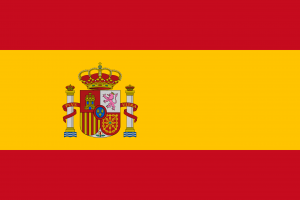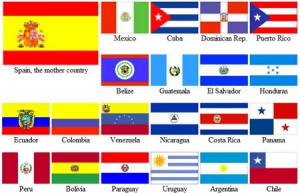Language/Spanish/Grammar/Definite-and-Indefinite-Articles
 Հայերէն
Հայերէն Български език
Български език 官话
官话 官話
官話 Hrvatski jezik
Hrvatski jezik Český jazyk
Český jazyk Nederlands
Nederlands English
English Suomen kieli
Suomen kieli Français
Français Deutsch
Deutsch עברית
עברית हिन्दी
हिन्दी Magyar
Magyar Bahasa Indonesia
Bahasa Indonesia فارسی
فارسی Italiano
Italiano 日本語
日本語 Қазақ тілі
Қазақ тілі 한국어
한국어 Lietuvių kalba
Lietuvių kalba Νέα Ελληνικά
Νέα Ελληνικά Şimali Azərbaycanlılar
Şimali Azərbaycanlılar Język polski
Język polski Português
Português Limba Română
Limba Română Русский язык
Русский язык Српски
Српски العربية القياسية
العربية القياسية Svenska
Svenska Wikang Tagalog
Wikang Tagalog தமிழ்
தமிழ் ภาษาไทย
ภาษาไทย Türkçe
Türkçe Українська мова
Українська мова Urdu
Urdu Tiếng Việt
Tiếng Việt
| ◀️ Nouns and Gender — Previous Lesson | Next Lesson — Subject Pronouns ▶️ |
Introduction[edit | edit source]
Welcome to the lesson on definite and indefinite articles in Spanish! Articles are an essential part of any language, and in Spanish, they play a crucial role in determining the gender and number of nouns. In this lesson, you will learn how to use the articles 'el', 'la', 'los', and 'las' correctly in Spanish. Understanding articles is a fundamental step towards becoming fluent in Spanish, so let's get started!
Definite Articles[edit | edit source]
In Spanish, the definite article is used to refer to specific nouns. It is equivalent to the English article 'the'. The definite articles in Spanish have four forms, each corresponding to a different gender and number combination. Let's take a look at them:
Masculine, Singular[edit | edit source]
The definite article for masculine, singular nouns is 'el'. It is pronounced as "ehl" and is used before singular nouns that are masculine. For example:
| Spanish | Pronunciation | English |
|---|---|---|
| el niño | ehl nee-nyoh | the boy |
| el perro | ehl peh-roh | the dog |
| el libro | ehl lee-broh | the book |
Feminine, Singular[edit | edit source]
The definite article for feminine, singular nouns is 'la'. It is pronounced as "lah" and is used before singular nouns that are feminine. For example:
| Spanish | Pronunciation | English |
|---|---|---|
| la niña | lah nee-nyah | the girl |
| la gata | lah gah-tah | the cat |
| la casa | lah kah-sah | the house |
Masculine, Plural[edit | edit source]
The definite article for masculine, plural nouns is 'los'. It is pronounced as "lohs" and is used before plural nouns that are masculine. For example:
| Spanish | Pronunciation | English |
|---|---|---|
| los niños | lohs nee-nyohs | the boys |
| los perros | lohs peh-rohs | the dogs |
| los libros | lohs lee-brohs | the books |
Feminine, Plural[edit | edit source]
The definite article for feminine, plural nouns is 'las'. It is pronounced as "lahs" and is used before plural nouns that are feminine. For example:
| Spanish | Pronunciation | English |
|---|---|---|
| las niñas | lahs nee-nyahs | the girls |
| las gatas | lahs gah-tahs | the cats |
| las casas | lahs kah-sahs | the houses |
Indefinite Articles[edit | edit source]
In Spanish, the indefinite article is used to refer to nonspecific or unidentified nouns. It is equivalent to the English articles 'a' and 'an'. Like the definite articles, the indefinite articles also have four forms based on gender and number. Let's explore them:
Masculine, Singular[edit | edit source]
The indefinite article for masculine, singular nouns is 'un'. It is pronounced as "oon" and is used before singular nouns that are masculine. For example:
| Spanish | Pronunciation | English |
|---|---|---|
| un niño | oon nee-nyoh | a boy |
| un perro | oon peh-roh | a dog |
| un libro | oon lee-broh | a book |
Feminine, Singular[edit | edit source]
The indefinite article for feminine, singular nouns is 'una'. It is pronounced as "oonah" and is used before singular nouns that are feminine. For example:
| Spanish | Pronunciation | English |
|---|---|---|
| una niña | oonah nee-nyah | a girl |
| una gata | oonah gah-tah | a cat |
| una casa | oonah kah-sah | a house |
Masculine, Plural[edit | edit source]
The indefinite article for masculine, plural nouns is 'unos'. It is pronounced as "oonohs" and is used before plural nouns that are masculine. For example:
| Spanish | Pronunciation | English |
|---|---|---|
| unos niños | oonohs nee-nyohs | some boys |
| unos perros | oonohs peh-rohs | some dogs |
| unos libros | oonohs lee-brohs | some books |
Feminine, Plural[edit | edit source]
The indefinite article for feminine, plural nouns is 'unas'. It is pronounced as "oonahs" and is used before plural nouns that are feminine. For example:
| Spanish | Pronunciation | English |
|---|---|---|
| unas niñas | oonahs nee-nyahs | some girls |
| unas gatas | oonahs gah-tahs | some cats |
| unas casas | oonahs kah-sahs | some houses |
Exceptions and Special Cases[edit | edit source]
While the rules for definite and indefinite articles in Spanish are generally straightforward, there are a few exceptions and special cases to be aware of. Let's explore them:
Nouns Starting with 'a'[edit | edit source]
When a singular noun starts with a stressed 'a' sound, the definite article 'el' changes to 'al'. This change is made to avoid the awkward pronunciation of two consecutive 'a' sounds. For example:
| Spanish | Pronunciation | English |
|---|---|---|
| al agua | ahl ah-gwah | to the water |
| al árbol | ahl ahr-bohl | to the tree |
| al aula | ahl ahoo-lah | to the classroom |
Nouns Starting with 'ha-'[edit | edit source]
When a singular noun starts with 'ha-', the definite article 'el' also changes to 'al'. This change is made for phonetic reasons. For example:
| Spanish | Pronunciation | English |
|---|---|---|
| al hotel | ahl oh-tehl | to the hotel |
| al huevo | ahl weh-boh | to the egg |
| al hacha | ahl ah-chah | to the ax |
Nouns Starting with 'o-' or 'ho-'[edit | edit source]
When a singular noun starts with 'o-' or 'ho-', the indefinite article 'un' changes to 'un'. This change is made for phonetic reasons. For example:
| Spanish | Pronunciation | English |
|---|---|---|
| un oso | oon oh-soh | a bear |
| un hombre | oon ohm-breh | a man |
| un hotel | oon oh-tehl | a hotel |
Conclusion[edit | edit source]
Congratulations! You've successfully learned how to use the definite and indefinite articles in Spanish. These articles are essential for proper noun usage and understanding gender and number in the language. Keep practicing and incorporating them into your Spanish conversations and writing. In the next lesson, we will explore subject pronouns, another crucial aspect of Spanish grammar. ¡Hasta luego!
Videos[edit | edit source]
Definite & Indefinite Articles in Spanish - YouTube[edit | edit source]
Definite and Indefinite Articles in Spanish - YouTube[edit | edit source]
Definite/indefinite articles in Spanish beginner explanation: artículos ...[edit | edit source]
Spanish Indefinite Articles - YouTube[edit | edit source]
Spanish Articles: Definite and Indefinite - YouTube[edit | edit source]
Sources[edit | edit source]
- Articles in Spanish Grammar
- Definite and Indefinite Articles in Spanish | Vamos Spanish Academy
- Definite and Indefinite Spanish Articles - Busuu
Other Lessons[edit | edit source]
- Past Perfect Tense
- Tener
- El tiempo presente
- Eso Esto Aquello
- Present Perfect Tense
- Conditional Mood
- Use of verb Haber
- Orientación sobre el uso de Articulos
- Imperfect Tense
- Past Participle
| ◀️ Nouns and Gender — Previous Lesson | Next Lesson — Subject Pronouns ▶️ |


